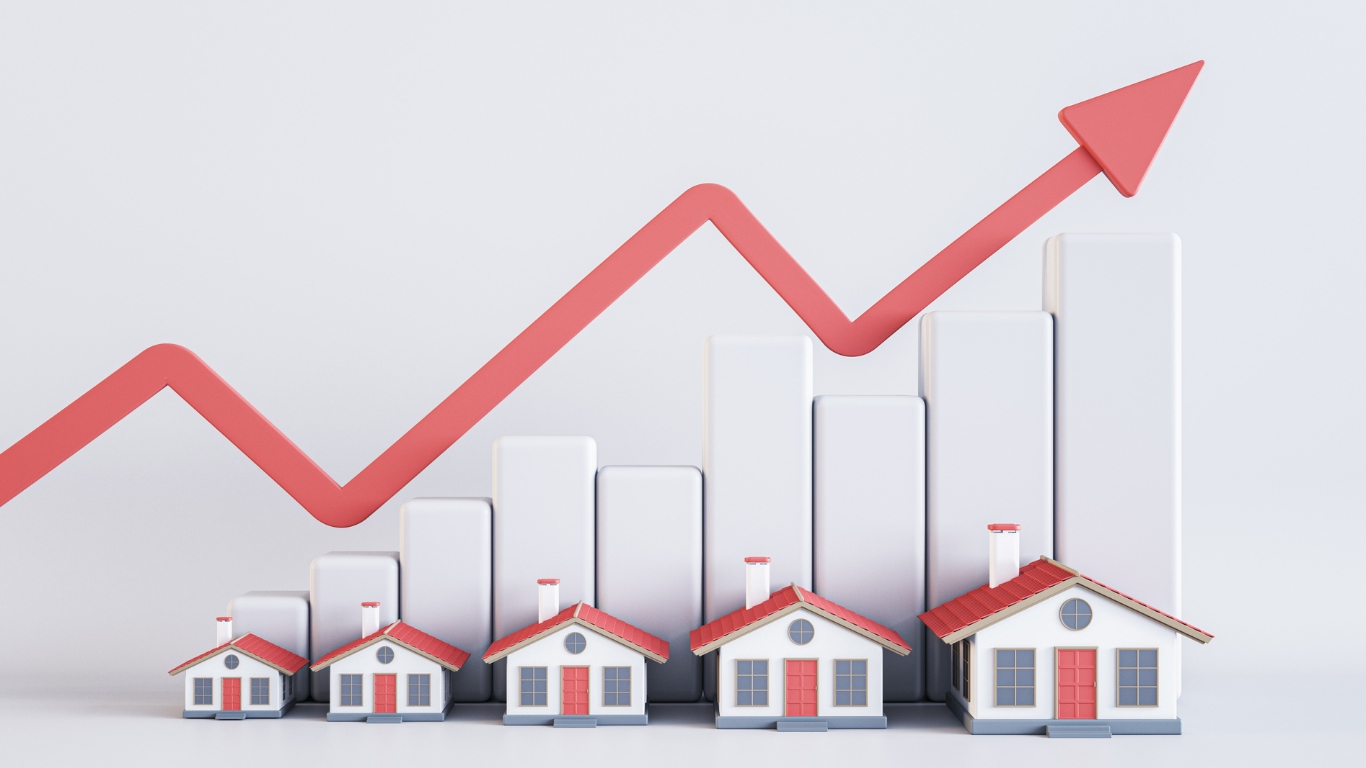Commercial Property Management Programs
Top Features to Look for in Commercial Property Management Software
Managing commercial properties can be a complex task, but leveraging the right tools can simplify this process significantly.
Commercial property management programs provide essential features that help landlords and property managers handle leasing agreements, financial reporting, and tenant communications efficiently.
With various software options available, you can find the right fit for your business needs, ensuring smooth operations and improved tenant satisfaction.
These programs are designed not just to streamline management tasks but also to enhance your overall customer relations. By choosing the right commercial property management software, you can foster better communication with tenants and keep track of important documents and deadlines easily. Investing in the right tools is key to maximizing the potential of your commercial real estate assets.
As you evaluate the many options on the market, it's important to focus on the features that will deliver the most value to your operations. Understanding what each program offers will help you make an informed decision that aligns with your goals in property management.
Key Takeaways
- Commercial property management programs streamline leasing and financial tasks.
- The right software improves tenant communication and satisfaction.
- Evaluating features helps you choose the best management solution for your needs.
Fundamentals of Commercial Property Management
Understanding the basics of commercial property management is crucial for anyone involved in the field. This area encompasses various roles and responsibilities, alongside the distinct types of commercial properties that need effective management strategies.
Roles and Responsibilities
As a commercial property manager, you play a vital role in ensuring the smooth operation of properties.
Key responsibilities include tenant management, which involves addressing tenant needs and issues. This requires strong communication skills to foster good relationships.
Lease management is another essential duty. You need to ensure all agreements are followed, including rent collection and contract renewals.
Financial report preparation is also crucial. You will analyze budgets and expenses to provide valuable insights to your investors or property owners.
Maintenance management ensures the property remains in optimal condition. This includes overseeing repair work and routine inspections. Keeping your properties well-maintained enhances tenant satisfaction and retention, which is key to successful property management.
Types of Commercial Properties
Commercial properties can be categorized into several types, each with unique management needs.
Office spaces can be single-tenant or multi-tenant buildings. Effective management here focuses on tenant retention and facilities maintenance.
Retail properties include shopping centers and standalone stores. Managing these requires attention to foot traffic and tenant mix, which influences overall profitability.
Industrial properties often involve warehouses and manufacturing sites. Here, streamlining operations and managing logistics are vital to success.
Finally, ports and mixed-use developments combine various property types. These require a broad understanding of regulations and stakeholder management to balance different interests effectively. Each property type demands specific strategies to maximize returns and ensure tenant satisfaction.
Key Features of Property Management Software
Using property management software can greatly streamline your operations. Understanding its key features is essential for effective management of your commercial or residential properties and can enhance the efficiency of your daily tasks.
Accounting and Financial Tools
Accounting and financial management are crucial aspects of property management.
With robust accounting tools, you can track income, manage expenses, and generate financial reports. Look for software that supports online rent payments and automatic payment processing to simplify collections.
You should also seek features that offer comprehensive expense tracking and financial reporting. This will allow you to monitor your property's financial health effectively.
Integration with other accounting software can save you time and reduce errors in financial records. Ensuring your software can manage accounting for multiple properties will also benefit you if you manage more than one location.
Operational Management
Operational management features help you oversee daily activities efficiently.
Essential tools include maintenance management, which allows tenants to submit maintenance requests easily. You can then create work orders to track and manage these requests.
Look for software that includes document management to keep important documents, such as lease agreements, organized and easily accessible.
Additionally, features that enable reporting on operational activities can provide insights into how your properties are performing. A user-friendly owner portal is another valuable asset, allowing property owners to stay informed about their investments.
Tenant and Lease Tracking
Tracking tenants and leases is vital for maintaining occupancy and compliance.
Effective software should include tenant screening capabilities to help you select reliable renters. Furthermore, automated lease administration features can assist you in managing lease dates, renewals, and expirations.
A tenant portal is also essential, providing tenants with easy access to lease information, payment options, and maintenance requests. This not only improves tenant satisfaction but can also reduce time spent on administrative tasks.
Look for tools that allow you to easily communicate important updates to tenants and keep your lease agreements well organized.
Property Management Systems and Customer Relations
Effective property management systems can significantly improve customer relations through streamlined communication and enhanced experiences for tenants and owners. These tools help you manage interactions and support efficiently.
Streamlining Communication
Property management software facilitates instant communication between you, tenants, and property owners.
Features like tenant portals enable residents to submit maintenance requests, pay rent, and communicate directly with you.
This system reduces delays and enhances customer service. You can send automated messages or reminders for rent due dates, keeping tenants informed.
Additionally, having an owner portal allows property owners to access reports and updates quickly, fostering transparency.
Using communication management tools, you can track all interactions easily. This ensures no tenant or owner feels neglected and enhances their overall satisfaction with your services.
Enhancing Tenant and Owner Experience
A positive experience for tenants and owners is vital for retention.
Property management systems help by offering easy access to customer support and information.
For tenants, a well-designed tenant portal provides essential resources, such as lease information and community updates. This accessibility encourages engagement.
You can also implement feedback features in the portal, allowing tenants to voice concerns or suggestions.
For property owners, informative dashboards with key performance metrics enhance their understanding of property performance. This kind of property management tool ensures you provide valuable insights quickly, leading to improved owner satisfaction and trust. By prioritizing these relationships, you can increase loyalty and streamline the management process.
Evaluating and Choosing Management Solutions
Selecting the right commercial property management program is crucial for your business. Key factors include comparing software features and understanding the implementation process and user experience.
Comparing Top Software Solutions
When comparing systems like DoorLoop, AppFolio, and Buildium, focus on essential features. Look at property management functions, tenant communication tools, and financial reporting capabilities.
Yardi Breeze and Re-Leased offer user-friendly interfaces, making them accessible for beginners. Rent Manager and Innago cater to various budget needs, including free trials for testing.
Consider platforms like RealPage Commercial for advanced functionalities and integrations with QuickBooks. Use resources like Capterra to read reviews and compare software before making a decision.
Implementation and User Experience
Your experience during implementation can significantly impact efficiency.
Look for solutions that provide comprehensive training and ongoing support. Effective onboarding processes enhance user adoption, which is essential for your team.
Select a software solution that prioritizes a clear and intuitive user interface. This allows quick navigation and helps you avoid confusion.
Reading user reviews can give insights into real experiences. Check how responsive the support team is in case you run into issues. Ensure the system can grow with your needs, providing the right balance of features and ease of use.
Frequently Asked Questions
You may have questions about commercial property management programs. This section addresses common inquiries, helping you understand the essential aspects of this field.
What are the best commercial property management programs currently available?
Some of the top commercial property management programs include apps and platforms that help streamline daily operations.
Look for software that offers features such as tenant management, maintenance tracking, and reporting. Programs like Buildium and AppFolio are known for their comprehensive tools.
Which commercial property management software offers the best value for free?
There are several free options that offer solid tools for commercial property management.
Software like Cozy provides features for tenant screening and online rent collection at no cost. These tools can be perfect for smaller landlords or those just starting.
How can someone enter the field of commercial property management with no prior experience?
Entering the field often requires a strong interest and some foundational knowledge.
You can start by taking online courses or seeking internships with property management companies. Networking with industry professionals can also provide valuable insights and potential job leads.
What are the top commercial real estate software companies known for robust platforms?
Several companies stand out for their powerful commercial real estate software.
Some of the leading names include Yardi, MRI Software, and RealPage. These platforms offer extensive features for property analytics, tenant management, and financial reporting.
Can a significant income be earned from a career in property management?
Yes, a career in property management can be financially rewarding.
Many property managers earn a competitive salary, especially in larger markets. Your income can increase with experience, specialization, and effective management of properties.
Are there any licensing requirements for property managers in specific states, such as Virginia?
Yes, licensing requirements vary by state. In Virginia, property managers must have a real estate license to manage properties on behalf of others. Make sure to research the specific regulations in your state to ensure compliance before starting in this field.
Let's elevate the industry together—share this blog with fellow investors.
More about Coastline Equity
Property Management Services
 Learn More
Learn MoreOur team will handle all your property needs, offering specialized services such as in-depth inspections, liability management, staff recruitment and training, and round-the-clock maintenance—expert support tailored to the unique requirements of your real estate assets.
About Us
 Learn More
Learn MoreOur dedicated team transforms property management challenges into opportunities. From tenant management to streamlined rent collection and proactive maintenance.
Property Management Excellence
 Learn More
Learn MoreAs a contributing author for Forbes, Anthony A. Luna brings a wealth of expertise and knowledge in the property management industry, real estate sector, and entrepreneurship, providing insights and thought-provoking analysis on a range of topics including property management, industry innovation, and leadership.
Anthony has established himself as a leading voice in the business community. Through his contributions to Forbes, Anthony is set to publish his first book, "Property Management Excellence" in April 2025 with Forbes Books.
Insights
 Learn More
Learn MoreLearn more about Coastline Equity's property management practices & processes and how we support our clients with education and a growth mindset.
Coastline Equity Property Management is your partner as you continue to learn and grow.
News & Updates



Property Management Made Easy
Los Angeles
1411 W. 190th St.,
Suite 225
Los Angeles, CA 90248
Temecula
41743 Enterprise Circle N.,
Suite 207
Temecula, CA 92590



